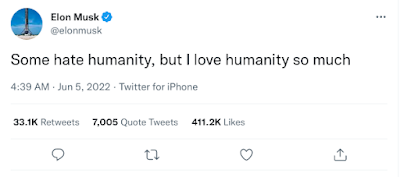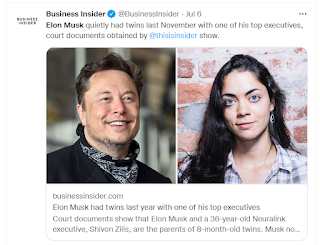Move thousands of homeless people into landmark L.A. Sears building? Some say no way https://t.co/e3jyuh83DR
— Mark Palko (@MarkPalko1) July 19, 2022
The Soulard School converted from private to charter in 2019. It has the highest percentage of white students of any public school in St. Louis city - 76%. It has 120 students in preK-5. https://t.co/TMIgvnXbHt
— Blythe Bernhard (@blythebernhard) July 18, 2022
I should probably talk more about this Monkey Cage piece.
When talking about a highly volatile situation, it never inspires confidence to support your assessment with a couple of almost 2 month old articles. pic.twitter.com/UHqjkq3HCV
— Mark Palko (@MarkPalko1) July 16, 2022
The Putin Caucus https://t.co/PlNddhlzpl
— Norman Ornstein (@NormOrnstein) July 18, 2022
⚡️ Germany to relaunch 16 coal and oil-fired power plants amid fears Russia will cut gas supplies.
— The Kyiv Independent (@KyivIndependent) July 17, 2022
German Chancellor Olaf Scholz ruled out reactivating nuclear power plants, arguing that this would not solve Germany’s energy needs.
sometimes dogs just know?? https://t.co/lUQ4ED8s94
— Dr Sarah Taber (@SarahTaber_bww) July 15, 2022
Recommended.
High inflation. Manchin and Sinema. Some of his own mistakes. But in my view, one of the biggest challenges for Biden has been facing a mainstream media looking to "balance" its anti-Trump coverage from 2017-2020. https://t.co/PZpjvTkTQ3
— Perry Bacon Jr. (@perrybaconjr) July 18, 2022
If the food poisoning, cultural appropriation, overpriced menu, and annoying brand hadn't already done it, this would keep me away from the chain.
Chipotle has closed the first store where employees tried to unionize.
— Dan Price (@DanPriceSeattle) July 20, 2022
Last year Chipotle gave its CEO a $24 million raise and paid him 2,898x more than their median employee. Then the company raised prices and blamed employee pay (the average worker makes $13,100).
"First as tragedy, then as farce."
Crypto is not the future of finance, but the entire history of past financial mistakes repeated at a futuristic pace.
— Concoda 🥷 (@concodanomics) July 17, 2022
That guy.
Former Crypto Billionaire Insists Unicorns Are Real. https://t.co/GTA4w5dl0f
— Grady Booch (@Grady_Booch) July 19, 2022
A few months before the Crypto market crashed, Coinbase offered its users an easy way to invest in more crypto — all they had to do was give the company direct access to their paychecks. Now, their earned wages are worth a fraction of that they should be.https://t.co/tBPT0R0UND
— Google “Google Glass: The Book” And Then Buy It (@quinmyers) July 19, 2022
Checking in with the Paypal Mafia.
Statistics is not your strength, is it?
— Grady Booch (@Grady_Booch) July 17, 2022
I am old enough to remember when Tesla production was spooling up for 1,000 roofs a week. https://t.co/2GZsxLc3eJ
— B Graham Disciple (@bgrahamdisciple) July 20, 2022
PETER THIEL-BACKED CRYPTO LENDER VAULD FILES FOR PROTECTION AGAINST CREDITORS - WSJ
— 4XInsight (@4xInsight) July 20, 2022
Musk's hard right pivot did score him a lot of kind words from Rupert's publications.
i mean, yeah, he could just lose and then defy the court and rely on the total collapse of the legitimacy and capacity of the american legal system, that's true. that's not normally what we mean by saying a lawsuit is a loser but it could work in this case pic.twitter.com/5VzwhglN7B
— flglmn (@flglmn) July 16, 2022
Do they covet the blood of the young, because that's Thiel's thing.
It must pain Jeff to know that his money and his muscles and his girlfriend aren't eternal, and maybe what comes next could be really bad for him.
— Russ Mitchell (@russ1mitchell) July 18, 2022
Meet Altos Labs, Silicon Valley’s latest wild bet on living forever https://t.co/4WDuvIdHht
Lesson for the youngsters: When an entrepreneur needs to raise a lot of money and starts spreading awesome prognostications about our wonderful future, and his own role in the world-saving transformation, most likely what he's spreading is horseshit. https://t.co/b0jCs5HhWx
— Russ Mitchell (@russ1mitchell) July 20, 2022
Conventional pundit wisdom was that Trump's statements about defending Social Security and Medicare had inoculated the GOP against that line of attack. Pundits can be idiots.
The 15 point drop in support for Republicans among seniors is telling. https://t.co/ILPZWdsqqR
— Joe Scarborough (@JoeNBC) July 19, 2022
this is a tough one pic.twitter.com/VnPmjJAxBY
— 🔥🔥Kareem Carr 🔥🔥 (@kareem_carr) July 15, 2022
“If you’re gay or transgender, I love you. And if anyone gives you any shit, tell em Charles says f*ck you!” - Charles Barkley pic.twitter.com/c1tUbvX5ga
— Ned Balme (@NedBalmeLives) July 15, 2022
Building a LEGO-powered Submarine with automatic depth control
— Massimo (@Rainmaker1973) July 17, 2022
[📹 YouTube's Brick Experiment Channel: https://t.co/HT8gLJMjEt]pic.twitter.com/P03KZDEHmR






.jpg)